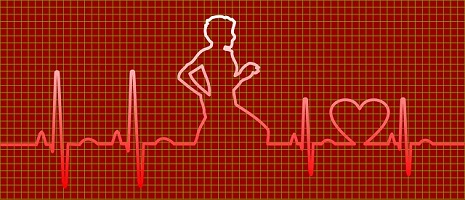Heart palpitations refer to the sensation of feeling your heart pounding, fluttering, or racing in your chest. A rapid heartbeats may be perceived as your heart beating faster than usual. These sensations can be alarming and uncomfortable, but they are relatively common and often not a cause for immediate concern. Here’s an explanation of why you might suddenly experience heart palpitations:
1. Stress and Anxiety
Emotional stress or anxiety can trigger the release of adrenaline, which can lead to an increased heart rate and palpitations.
2. Caffeine or Stimulants
Consuming excessive amounts of caffeine or other stimulants can cause the heart to beat faster and may lead to palpitations.
3. Dehydration
Lack of proper hydration can affect the body’s electrolyte balance and heart function, potentially causing palpitations.
4. Physical Activity
Intense exercise or strenuous physical activity can temporarily increase heart rate, causing palpitations.
5. Hormonal Changes
Hormonal fluctuations, especially during pregnancy, menopause, or menstruation, can contribute to heart palpitations.
While occasional heart palpitations are usually benign and not a cause for concern, it’s essential to pay attention to their frequency, duration, and any associated symptoms. If you experience frequent or persistent palpitations, especially if they are accompanied by chest pain, lightheadedness, fainting, or shortness of breath, it’s important to seek medical attention promptly. Here’s an explanation of when to Seek Medical Attention.
1. Structural Heart Problems
In some cases, structural abnormalities in the heart, like heart valve issues or congenital heart defects, can cause palpitations.
2. Arrhythmias
Sometimes, the heart’s electrical system can experience disruptions or abnormalities, leading to irregular heartbeats or arrhythmias.
3. Overactive Thyroid (Hyperthyroidism)
An overactive thyroid gland can cause excessive production of thyroid hormones, leading to palpitations.
It’s crucial to diagnose and treat atrial fibrillation promptly to reduce the risk of complications, such as stroke or heart failure. If you experience heart palpitations or any other concerning symptoms, it’s essential to seek medical attention for proper evaluation and management.
A healthcare professional can evaluate your symptoms, perform tests like an electrocardiogram (ECG/EKG), and diagnose the underlying cause. Depending on the findings, appropriate treatment or lifestyle adjustments may be recommended to manage or resolve the palpitations. Always consult a healthcare professional for personalized advice and care.

